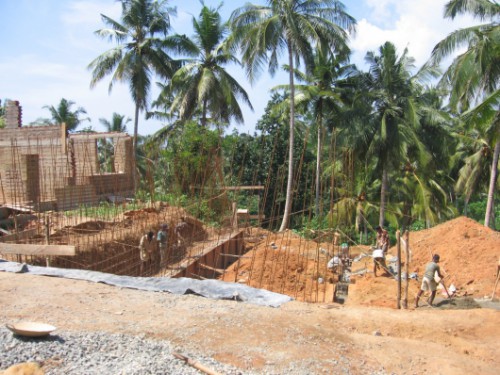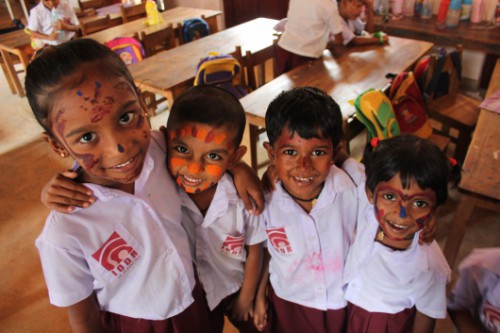21st December 2014 Colombo, Sri Lanka
IODR: Rebuilding lives, bringing smiles
The fifth blog in our series tells of the inspiration for Indian Ocean Disaster Relief (IODR), a charity which supports especially children to survive a natural disaster, and then rebuild their lives. Chairman and founder, Tony Matharu, tells the story.
 Nearly 10 years ago on Boxing Day 2004, having overindulged during the Christmas period, I had settled down to watch José Mourinho’s Chelsea win another football match. Then text messages and emails started to ping through and the horrors and reality of the distant South Asian tsunami began to reveal themselves to me. Even worse, people I knew were in the disaster zone.
Nearly 10 years ago on Boxing Day 2004, having overindulged during the Christmas period, I had settled down to watch José Mourinho’s Chelsea win another football match. Then text messages and emails started to ping through and the horrors and reality of the distant South Asian tsunami began to reveal themselves to me. Even worse, people I knew were in the disaster zone.
At that moment, I resolved to help those in need – initially to save and sustain lives and subsequently, to protect and support survivors. Indian Ocean Disaster Relief – or IODR – was born.
The feature film, The Impossible, based on a true story, (the UK Premiere nominated IODR as its charity partner) accurately illustrates the impact of the unprecedented natural disaster which killed over 230,000 people and changed forever the lives of 1.7 million others.
Mourinho is back with a rebuilt team and winning again at Chelsea. IODR has rebuilt the lives of many during the last 10 years, especially of vulnerable children. Our focus on community, welfare and education is exemplified by the Weligama Community, Welfare and Education Centre in southern Sri Lanka. It currently assists more than 350 children daily. Substantially expanded since 2004, the Centre and its rehabilitation child outreach work have assisted thousands of children.
IODR’s primary work takes the form of rehabilitation and education, provided free to those identified as ‘in need’ or ‘samurdhi’. This includes English language, IT and hospitality training programmes to improve the futures and livelihoods of those recognised as being the most disadvantaged in society; focussing and maximising the impact and quality of the aid that IODR provides. Our abiding legacy is visible in the children whose lives IODR has irreversibly transformed.
Away from the tsunami affected areas, IODR has chosen to get involved elsewhere in Sri Lanka – particularly in the North after the end of hostilities in that region. The IODR Oval – where the first Murali Harmony Cup was launched in 2012 – provides a tangible symbol of hope and reconciliation, enabling children from all over the island to engage with each other, on a sports field or in school, irrespective of race, religion, ethnicity or creed, in a region where children have been used to war and conflict.
IODR believes that every child has the right to fulfil their ambitions and desires despite the devastating impact of natural and other disasters. As well as helping children in the immediate aftermath, IODR’s work can help a region affected by disasters in the longer term to become sustainable and responsible for their own future. So we send emergency supplies, but we then remain involved, supporting rehabilitation through education in the broadest sense, not just reading and writing. We encourage children and give them the confidence to grow through sports and play, for example through building recreational centres.
In other countries, IODR has intervened in the aftermath of other natural disasters: in Kashmir; Haiti; the Philippines; India; Pakistan and Burma, helping to preserve, sustain and rebuild lives, particularly for the young and vulnerable. The tsunami brought devastation of catastrophic proportions, but it also started something much greater than I could ever have imagined on that first, dreadful Boxing Day.
Read other blogs in the series:


